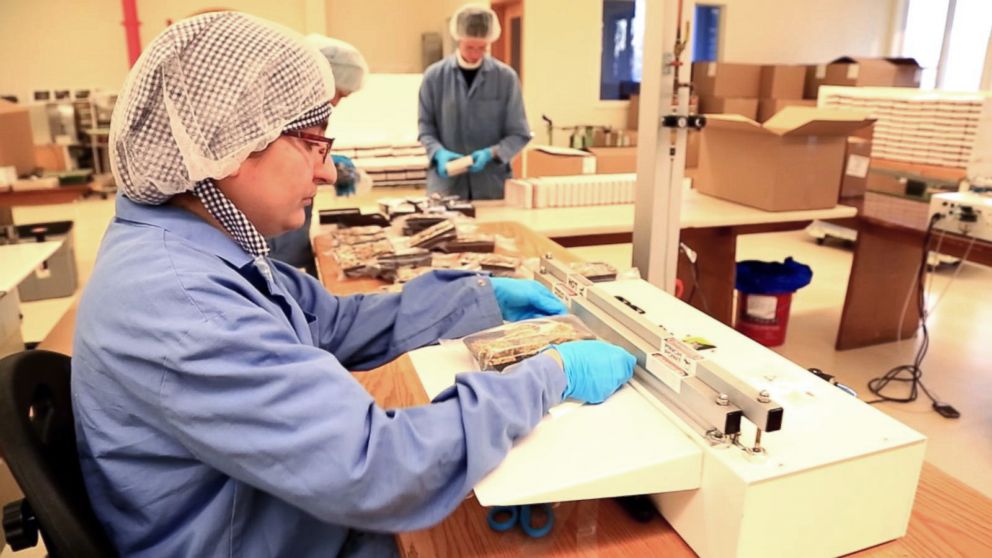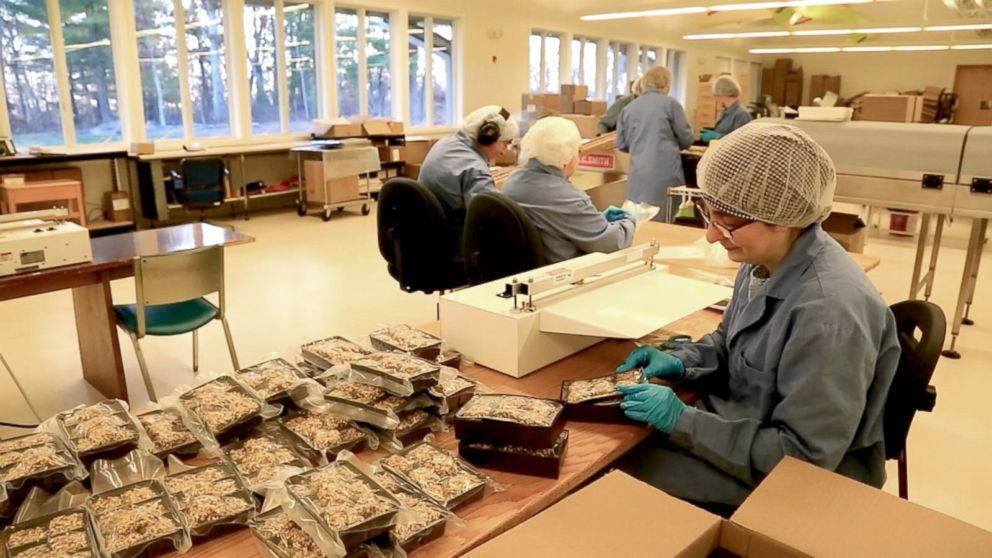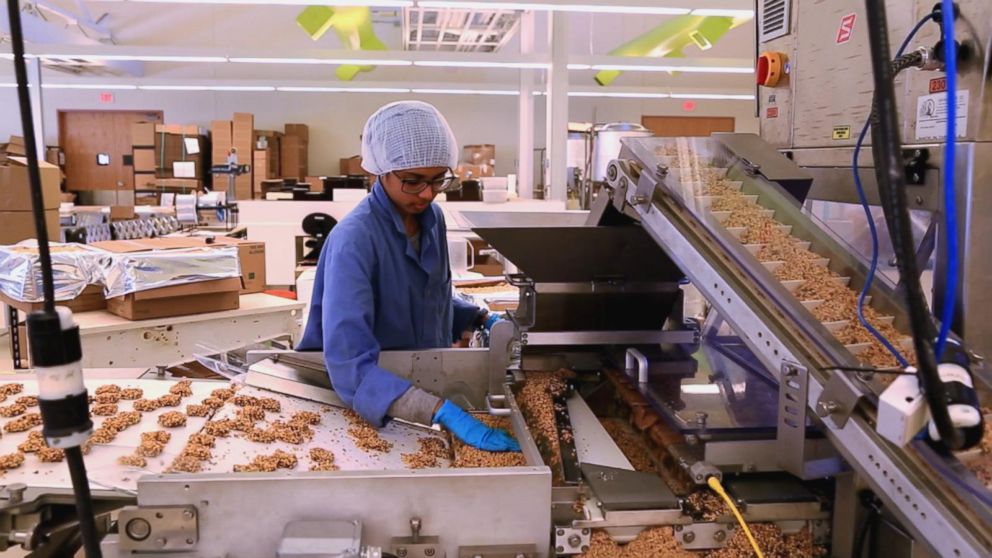Nuns behind chocolate company share their candy's special ingredient
Trappistine Quality Candy is made by nuns in Wrentham, Massachusetts.
— -- The nuns at Trappistine Quality Candy are selling and shipping out boxes of chocolates this Christmas season, complete with a little something extra.
"We make our candy with love and prayers," Sister Sophia Millican said. "That's what we put in our boxes to express our hope and our desire that those who give and those who receive our candy have that in mind."
Trappistine Quality Candy is made by the nuns of the Order of Cistercians of the Strict Observance, more commonly known as Trappistines, in Wrentham, Massachusetts.

"It's part of our tradition in the Cistercian life that every monastery has an industry, so I knew that coming here the industry would be chocolate, and the whole community has to get involved because it's how we make our living," Sister Carla Goncalves said. "I didn't know what I would be doing in here but I sort of knew that I would be playing Willy Wonka."
Gearing up for Thanksgiving dinner, with a nod to Made in America
US company provides kits to grow your own Christmas tree
There are about 10 to 12 nuns daily who handle everything from production to shipping and taking orders. The company produces around 50,000 to 60,000 boxes of candy a year to support the monastery. Their candy is sold online and also at Mount Saint Mary's Abbey, which the nuns call home.
Butternut munch is the most popular product but this year, Trappistine Quality Candy introduced a new product: almond brittle.

The monastery was founded in 1949. In the beginning, the nuns ran a dairy farm and a bakery. But, in 1956, Sister Millican said, the nuns started cooking candy in the basement. Five or six years ago, they were able to build a new facility.
Although the nuns are cloistered, Sister Christina Sepe said working at the candy factory put the nuns in touch with people from around the world.
"I see every day these gifts, messages of people giving to people they love. Messages of love and peace and reconciliation and reaching out. ... I get to see that every day," Sister Sepe said.

And, just in time for Christmas, some additional Made in America holiday staples and treats:
Table Talk Pies in Worchester, Massachusetts, was founded in 1924 and is still family-owned. Each week, 300 workers bake up to 4 million of the company's signature mini pies.
Doscher's Candies was founded in Newtown, Ohio, in 1871. It employs 12 workers and this year, the company expects to make about 1 million candy canes by Christmas. The company said it's still using the same recipe, producing candy canes in small batches using copper kettles and twisting the candies by hand. Outside of Christmas, the company said, its most popular candy is the French chew.
Orban's Nursery, located in Bradenton, Florida, produces poinsettias, its most popular product. Orban's grows 200,000 to 250,000 of the plants. The nursery started in 1914 and only opens one day a year -- the Saturday after Thanksgiving -- to the public.




